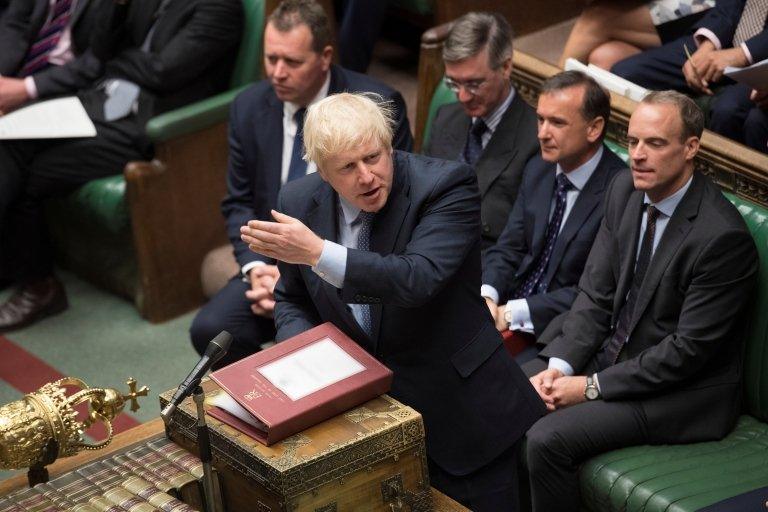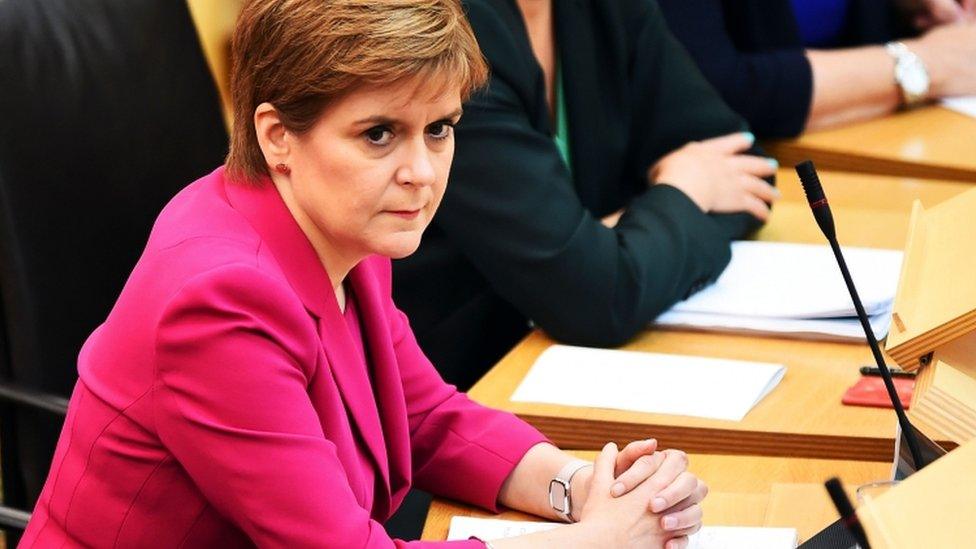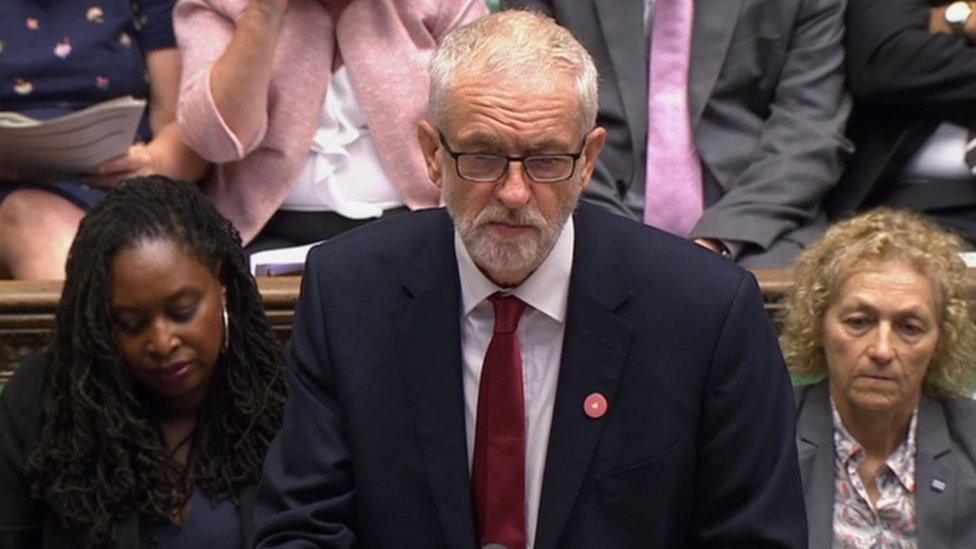An election is on the way - but will the PM get his breakneck timetable?
- Published

"We're snookered," a member of the Cabinet whispered as they stopped for a brief word, rushing past during this most frantic 48 hours.
And it seems they may well be right. On paper, the prime minister is dead set on securing the election he claims not to want.
The opposition parties claim that they are desperate to have a chance to turf the Tories out of office.
For two years, week after week, Jeremy Corbyn has said he wants an election to bring an end to years of Tory rule.
And Nicola Sturgeon, the first minister of Scotland and leader of the SNP, yesterday said an election must be called before Parliament is suspended next week.
But, as things stand, there is no way that Boris Johnson's ruthless team in Number 10 can be sure they will get the chance to ask the country for a majority on the breakneck timetable they have set out.
Mr Corbyn has said - on the record and in the official party statements - he will back a general election once the legislation to exclude the possibility of leaving without a deal has landed on the statute book.
Depending on the progress in the Lords, that could mean Boris Johnson gets his way - and an election is agreed for 15 October.
Late on Tuesday night senior figures in Labour conceded that could mean signing on the dotted line on Friday.

Nicola Sturgeon has said an election must be called before Parliament is suspended
But opinion in the Labour party is hardening against that timetable. There was a passionate meeting of Labour MPs yesterday morning where there was near unanimous agreement that they simply could not play along.
They would agree to an election, Sir Keir Starmer said, only once the prime minister had actually been forced to ask the EU for an extension.
In other words, they'd only say yes to going to the country after mid-October, so an election would not be possible until November, after the current Brexit deadline has passed and departure has been delayed.
One senior backbencher told me they'd had personal assurance from Mr Corbyn himself late on yesterday night that was the case.
And a senior source in attendance at the meeting of opposition leaders yesterday said there was agreement there that they would not grant an election before an extension was implemented.
Of course that leaves Labour open to the charges Mr Johnson has already laid, that Mr Corbyn is "frit", or less traditionally a "great big girl's blouse". And Downing Street believes that allows them the upper hand, to portray Labour to the nation as cowardly, afraid of the country's verdict.
Indeed, more aggressive elements inside the Johnson bunker (and yes, it feels like a bunker already), believe even this could help them build up the sense they are merely trying to represent the public, while "Parliament" is thwarting their choice.
One member of the shadow cabinet suggested they might be right, telling me yesterday "no elected politician could stand in the way" of facing the ballot box, worried about the damage an impression of holding back from an election could give.
Other routes to election
It's also true that asking the House of Commons for a two-thirds majority is not the only way for Boris Johnson to force an election.
No 10 could introduce a simple vote where they would only need a majority of one, or in a more extreme circumstance, hold a vote of no-confidence in itself, that Labour might find hard to stand against.
Opinions are fluid. The prime minister may yet get his way. But do not put a 15 October election in your diary in anything more than pencil for now.
In time, whether it's in mid-October or November, it's hard to find an MP who believes an election is not coming soon.
The government has no majority, so it cannot govern effectively. For all the howls about rule-breaking, our traditions tell us that means an election is on the way.

Opinion in the Labour party is hardening against Boris Johnson's timetable
This Parliament has simply not been able to find a resolution to the result of the referendum. So before too long, the public will be asked to press refresh.
But here's the irony. By deciding to suspend Parliament early next week, Mr Johnson might not have time in the Commons to try all the ploys that might grant him an election on the schedule he so desires.
At the very least he could be racing against the controversial deadline he himself did not need to set.
PS If anything, the helter skelter has been steeper and more twisted in the last two days in Parliament than even in the closing crazy few months before the summer .
- Published4 September 2019
- Published29 August 2019
